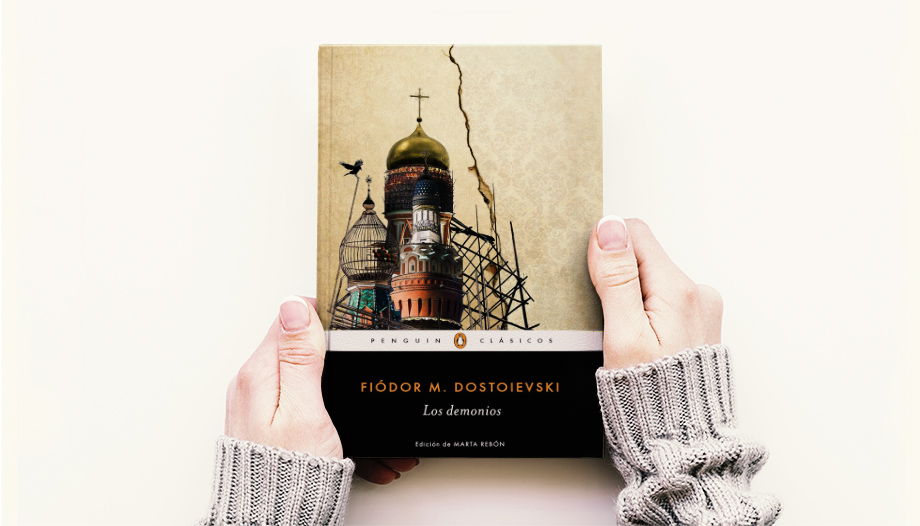He was found floating in the Moscow Reservoir, tied up and with five bullets in his body. He was a student who belonged to a terrorist cell: five of his classmates had murdered him for fear that he would inform on them.
Dostoyevsky learned of the events in Dresden, and judged that the case hid a deeper problem: Russian youth was being haunted by the temptation of nihilism and the loss of values....
In the novel The demons (1871) we accompany Dostoyevsky on a spiritual journey, something like a tour of voices that produce different kinds of chills.
The characters are hyperbolic and, at the same time, we can recognize them in our hearts. Therefore, by getting to know each other, we also get to know ourselves better: we rediscover that we are capable of behaving like angels or demons.
The relationship between the length and the rhythm of the story makes me think of a rather rigid spring. In the first 300 pages, the author compresses the spiral to introduce us to the characters and the provincial environment in which they move.
The reader's patience is tested, but once the spring has been fully crushed, then the action explodes and you realize that that initial investment was totally worth it. The pages flow, the crimes follow one after the other and, before you know it, you've finished reading the book... and you're forever changed.
How does he achieve this effect? The 19th century witnessed the development of polyphonic narrative in the novel, that is, story lines that evolve simultaneously.
The demons is an example of the use of this resource. If we look closely, this novel could have been divided into three. According to Milan Kundera's scheme, we could mention: "(1) the novel ironic of the love between old Stavroguin and Stepan Verkhovenski; 2) the novel romantic of Stavroguin and his love affairs; 3) the novel policy of a revolutionary group".
What unites these three stories are the characters and the interactions they have with each other: this gives cohesion to the work and multiplies its expressive force.
Dostoyevsky believed that we men are much more united among ourselves than we think: somehow all the Russians of his time were guilty of Ivanov's murder. But that concept of moral solidarity has lost much of its meaning among us, and we find it difficult not to regard it as an exaggeration.
How can we understand this, could it be that we need to be more committed to the successes and misfortunes of others and we have not realized it? The image of the athlete who breaks a speed record comes to mind; when that happens, we all rejoice that our species has surpassed that limit, why? Maybe we feel that somehow I was also I who cut that ribbon. Let's look at a more striking case: when the Son of God became man, the whole human species climbed a new step in history. Suddenly our human nature had access to friendship with God.
However, down below, the steps leading to the zone of the terrible seem to have no bottom. The ideas of some and the negligence of others influence the crimes of those beyond. At the same time, and this is the paradox, each human being is free and responsible for his own acts.
Dostoyevsky's ideas are embodied in literature and invite us to reflect on how to approach the conversation with the atheists of our time. If God does not exist, what authority does a captain have, is it coherent for the atheist to think of committing suicide?
On the other hand, if God exists, how astonishing is it that we can love him eternally? In this novel, the characters face extreme questions and take their personalities to limits that border on madness.
Thanks to this powerful effort we can learn about psychology and enjoy pure entertainment.







